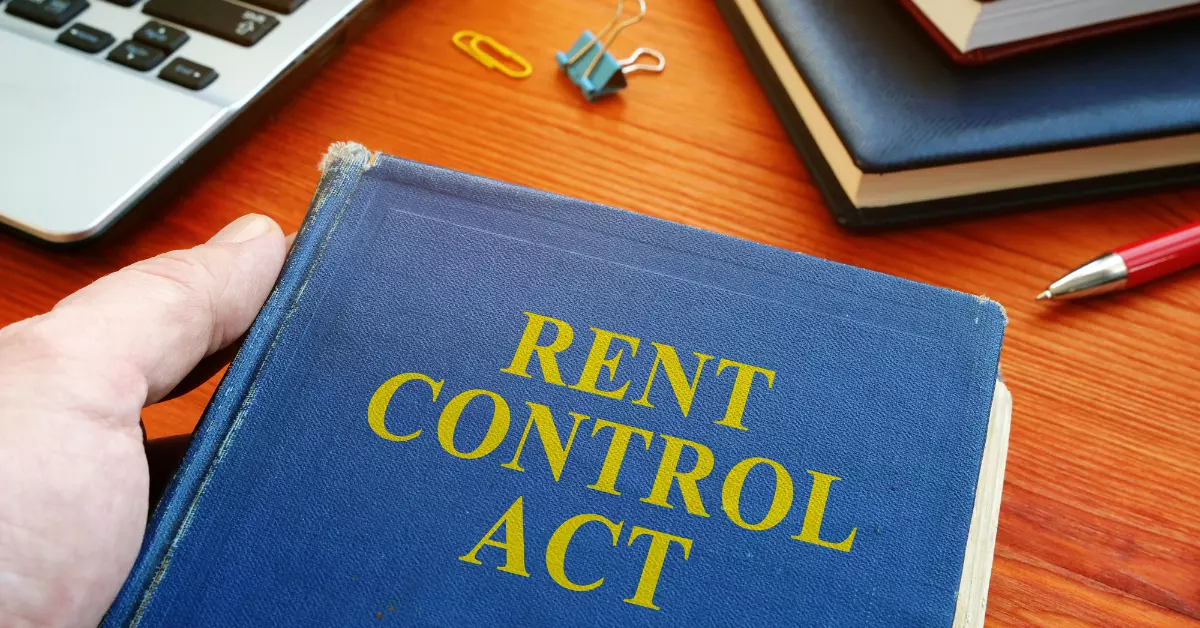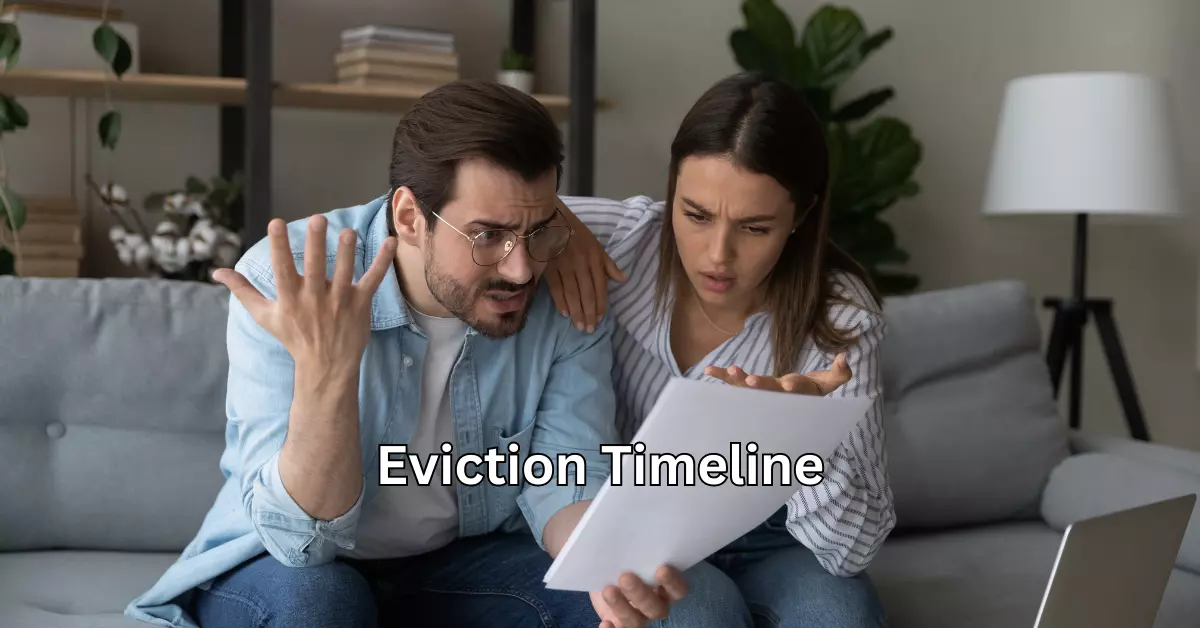How Long Does It Take to Evict a Tenant in Jamaica?
It takes approximately 6-12 months to evict a tenant in Jamaica through the court system. Evictions are regulated by the rent restriction act, which outlines the legal process that must be followed.
A landlord must first give the tenant a written notice to quit the premises, and if the tenant does not leave voluntarily, the landlord can file an eviction lawsuit.
The court will then determine the validity of the filing and may provide the tenant with time to vacate the premises.
In some cases, a bailiff may be involved in physically removing the tenant. The process to evict a tenant in Jamaica can be lengthy, but it is necessary to ensure that landlords follow the required legal procedures.

The Legal Process Of Eviction
Being a landlord and having tenants can be a lucrative business. However, things do not always go as smoothly as planned.
In cases where tenants refuse to abide by agreements or fail to pay rent, eviction becomes a necessary process.
Jamaica has laws in place to govern the eviction process and provide structure to resolve disputes between landlords and tenants.
Let’s explore the legal process of eviction in Jamaica.
Understanding The Jamaican Laws On Eviction
Before understanding the eviction process, it is essential to know the Jamaican laws that govern eviction. The rent restriction act of 1983 lays out the legal framework for residential and commercial tenancies in Jamaica.
This law sets out the rights and obligations of both landlords and tenants, including the procedure for evicting a tenant.
Types Of Tenancy Agreements Recognized By Jamaican Law
There are two types of tenancy agreements recognized by jamaican law – a fixed-term tenancy agreement and a periodic tenancy agreement.
A fixed-term tenancy agreement runs for a specified period and ends on the agreed date unless renewed. A periodic tenancy agreement runs on a rolling week-to-week or month-to-month basis and can be terminated by either party.
Rent Control Act And Its Implications On Tenancy Agreements
The rent control act is legislation that regulates rent and protects both landlords and tenants.
This act states that a landlord cannot increase rent for the first year of a fixed-term lease, and the maximum annual rental increase is 7.
5% for the following years. This also means that a landlord cannot evict a tenant without a valid reason or without following due process.

The Eviction Process As Per Jamaican Law
The eviction process in Jamaica must be carried out lawfully to avoid legal repercussions. A landlord must first send notice to the tenant and provide a valid reason for eviction.
If the tenant fails to comply, the landlord can file an eviction application in court and follow the legal process through to its conclusion.
Sending Notice To The Tenant
A notice of eviction is the first step to initiate the eviction process in Jamaica. This notice must be in writing, including the reason for the eviction, and provide a time frame for the tenant to rectify the issue or vacate the property.
Filling Eviction Application In The Court
If the tenant does not rectify the issue or vacate the property within the stipulated time, the landlord can file an eviction application with the resident magistrate’s court.
The application must be accompanied by all relevant documents, such as the tenancy agreement and notice of eviction.
Ensuring That All Legal Requirements Are Met Throughout The Process
Throughout the eviction process, it is essential to ensure that all legal requirements are met.
Failure to do so may result in the eviction being overturned in court, and the landlord may be required to pay damages to the tenant.
It is advisable to hire a lawyer to guide the process to avoid any legal pitfalls.
Timeline For Resolution Of Eviction Case
The timeline for resolving an eviction case varies but typically takes between 2-4 months. The timeline may be longer if the tenant challenges the eviction in court, or if the landlord fails to follow due process.
Evicting a tenant in Jamaica requires adhering to the laws set out by the rent restriction act of 1983.
The process can be lengthy and complicated, making it crucial that landlords follow due process to avoid legal repercussions.
Factors Affecting Eviction Timeline
Evicting a tenant is a time-consuming process in Jamaica, and several factors come into play when determining the timeline for eviction. The following are essential factors that can affect the eviction timeline:

Tenant Cooperation
If the tenant cooperates with the landlord or property manager and vacates the premises without any problems, the eviction process can take less time.
However, if the tenant fails to cooperate and challenges the eviction notice, the process can be prolonged.
Impact Of Tenant Defaulting On Rent Payments
If the tenant is owing rent, the landlord can serve a notice to quit as a precursor to an eviction.
The eviction timeline will be affected by how long it takes the tenant to make the necessary payments or vacate the property.
Influence Of Tenant Reaction To The Eviction Notice
If the tenant decides to challenge the eviction notice through the courts, the timeline for eviction may be extended.
The tenant can also request additional time to move out, which can prolong the eviction process.
Court Proceedings
The eviction process in Jamaica involves going through the legal system, which can be time-consuming.
The Complexity Of The Case
If the case is complex, it may take longer to resolve. For example, if the tenant is disputing the circumstances surrounding the eviction, such as the validity of the notice served.
Court’S Caseload And Backlogs
The court’s caseload and backlogs can also affect the eviction timeline. If the court has many cases to deal with, it may take longer for the case to be heard.
Obtaining Favourable Judgments
Obtaining a favorable judgment is crucial to the eviction process. If a favorable judgment is obtained, the eviction process can proceed smoothly.
However, if the court rules in favor of the tenant, the eviction timeline may be extended.
Enforcement Of Eviction
Once a court grants an eviction order, the landlord must enforce it. This also affects the eviction timeline.
Timely Execution Of Eviction Orders
If the eviction order is not executed within the specified period, the landlord may have to apply for an extension. This can add more time to the eviction process.
Costs Involved In Eviction
Evicting a tenant can be expensive, and the costs involved can also affect the eviction timeline. The landlord must pay for legal fees, as well as costs associated with enforcing the eviction order.
Tips For Landlords
Being a landlord in Jamaica comes with several responsibilities. One of the most challenging aspects of being a landlord is evicting a tenant.
Whether it’s for non-payment of rent, breach of a lease agreement, or any other valid reason, the eviction process can be lengthy, time-consuming, and costly.
Here are some tips on how to prevent eviction and what to do if you must proceed with eviction.
Best Practices For Preventing Eviction
Preventing eviction should be a top priority for every landlord. Here are some best practices that can help you prevent eviction:
- Screen tenants carefully before signing a lease agreement.
- Be flexible and considerate when dealing with tenants’ financial issues.
- Maintain a good relationship with the tenant and address any concerns promptly.
- Conduct regular maintenance and inspections on the property.
Improving Tenancy Agreement Clauses
Having a well-drafted tenancy agreement is crucial when it comes to avoiding eviction. The following clauses should be added to the tenancy agreement to provide a legal framework for both parties:
- Rent payment clauses that specify the amount, due date, and mode of payment.
- Duration of tenancy clauses that specify the start and end date of the lease agreement.
- Termination clauses specify the conditions under which the tenancy agreement can be terminated.
- Renewal clauses specify the conditions under which the tenancy agreement can be renewed.

Communication And Negotiation With Tenants
Communication is key in any landlord-tenant relationship. Here are some ways in which landlords can enhance communication with tenants and avoid eviction:
- Clearly define expectations and responsibilities in the tenancy agreement.
- Have an open-door policy and encourage tenants to communicate any concerns or issues that arise.
- Be willing to negotiate and find solutions that are mutually beneficial.
Ensuring Legal Compliance
The eviction process in Jamaica is highly regulated, and landlords must ensure that they comply with all legal requirements when evicting a tenant.
Understanding All Legal Requirements
Landlords should make sure that they understand all legal requirements, including the necessity of serving an eviction notice and obtaining a court order to remove the tenant.
Seeking Legal Counsel When Necessary
If in doubt, landlords should seek legal counsel to ensure that they comply with all legal requirements and avoid costly legal battles.
Dealing With Difficult Tenants
No landlord wants to deal with difficult tenants. Here are some ways to deal with difficult tenants and avoid eviction:
- Try to resolve any conflicts amicably.
- Use dispute resolution methods such as mediation or arbitration to resolve any disputes.
- If all else fails, follow the legal process for eviction.
Dispute Resolution Methods
Dispute resolution methods such as mediation or arbitration can help landlords and tenants resolve disputes without having to resort to eviction.

Navigating The Eviction Process Efficiently
The eviction process in Jamaica can be lengthy and costly. Landlords should take steps to navigate the process efficiently to avoid delays and minimize costs. Here are some tips for navigating the eviction process:
- Follow the legal process for eviction.
- Obtain a court order for eviction.
- Hire a bailiff to carry out the eviction order.
Summary Of Findings
Duration Of Eviction Process In Jamaica
Evicting a tenant can be a lengthy process in Jamaica, and the time frame can vary depending on various factors. Generally, it takes approximately 6-12 months to complete the eviction process in Jamaica.
Influencing Factors On The Timeline Of Eviction
Several factors can affect the duration of the eviction process in Jamaica, including:
- Type of eviction notice served to the tenant.
- Response time of the tenant to the eviction notice.
- The complexity of the eviction case.
- Court schedules and availability.
- Legal representation by tenants and landlords.
- Delays in gathering and submitting evidence.
Tips For Landlords That Can Help With Eviction Proceedings
Navigating the eviction process can be daunting for landlords, but the following tips can help them stay on track:
- Ensure the eviction notice is correctly formatted and delivered to the tenant.
- Keep a written record of all communication with the tenant related to the eviction.
- Get legal advice and representation from an experienced attorney.
- Be patient and prepared for a lengthy legal battle.
- Avoid taking any actions that could worsen the situation or violate tenant rights.
- Consider mediation or settlement negotiations to resolve the issue outside of court.
Frequently Asked Questions For How Long Does It Take To Evict A Tenant In Jamaica
How Can A Landlord Legally Evict A Tenant In Jamaica?
A landlord can legally evict a tenant in jamaica by obtaining a court order and serving it to the tenant. The tenant must then vacate the property within the period specified in the court order.
What Is The Process For Eviction In Jamaica?
The process for eviction in Jamaica involves filing a claim with the resident magistrate court, attending a hearing, obtaining a court order, and serving it to the tenant. It is important to follow the legal process to avoid legal issues.
How Long Does It Take To Obtain A Court Order For Eviction In Jamaica?
Obtaining a court order for eviction in Jamaica can take between 2-3 months, depending on the complexity of the case and the efficiency of the court system. It is important to have all necessary documentation and evidence to present at the hearing.
What Are The Consequences Of Evicting A Tenant Illegally In Jamaica?
Evicting a tenant illegally in Jamaica can result in legal consequences for the landlord, such as fines and imprisonment. It is important for landlords to follow the legal process for eviction to avoid legal issues and ensure their actions are fair and justifiable.
Conclusion
It’s clear, isn’t it? When you’re faced with evicting a tenant in Jamaica, prepare for a process that might stretch to roughly 4-6 weeks.
Yet, by knowing the law, keeping calm, and following procedures, you’ll navigate this challenging task with grace and confidence.